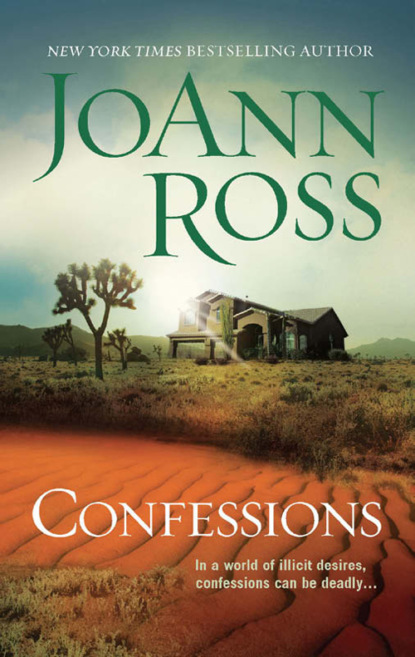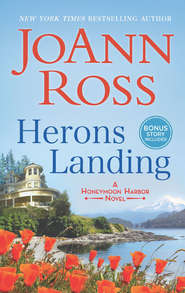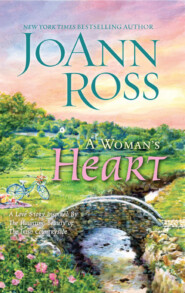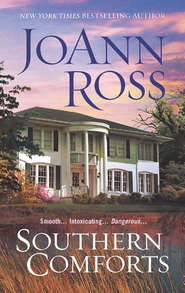По всем вопросам обращайтесь на: info@litportal.ru
(©) 2003-2025.
✖
Confessions
Автор
Год написания книги
2018
Настройки чтения
Размер шрифта
Высота строк
Поля
Thinking he might be dealing with a sexual assault as well as a murder, Trace began going through the lingerie strewn over the floor, checking the frothy bits of silk and satin and lace a piece at a time to see if by chance any of the skimpy pairs of panties had been stripped off the victim.
“Jesus!” He picked up a garment so sheer he could see his hand through the diaphanous silk.
J.D. glanced up and couldn’t quite repress his grin. “It’s a teddy. I bought Jilly a red one for Valentine’s day. At Victoria’s Secret. She liked it a lot.” His grin widened. “I liked it even better.”
“I’ll bet.” Trace wondered why, if the senator’s wife was such a fan of sexy lingerie, she went to bed nude. Perhaps, he considered, thinking of what Fletcher had said about not wanting to wake his wife up, she didn’t bother dressing seductively when she knew she was going to be sleeping alone.
Ellen had always come to bed wearing his ratty old oversize police academy T-shirts. It crossed Trace’s mind that if she’d favored underwear like this, they might still be married.
Then again, probably not. Sex had never been their problem. At least, not in the beginning. By the time they finally called it quits, neither of them had felt like rolling around in the sheets.
Trace held up an ivory teddy. The early morning light streaming through the bedroom window rendered it nearly transparent.
“You actually walked right into a store, in a public mall, where anyone could see you and bought something like this?”
Shit, he’d been married nine months before he worked up the nerve to buy tampons at the 7-Eleven. For the second time today, Trace found himself feeling like an over-the-hill dinosaur.
“Actually,” J.D. admitted, “I ordered it from a catalog.”
Deciding that he’d love to get a look at J.D.’s catalog, Trace moved the teddies aside and found the letters, tied with a blue satin ribbon.
Love letters, he figured. So the lady had been a romantic. He could have guessed that from the fancy underwear and the romance novel on the nightstand. What Trace did find interesting was that the bold black script on the outside of the envelopes didn’t begin to resemble the precise cursive found on the pages of Alan Fletcher’s appointment book.
Holding one of the letters gingerly by the edges, Trace turned it over. It was signed simply Love always, C.
The postmark on one of the envelopes was stamped right here in Whiskey River a little over a week ago, which added an interesting twist to the murder. Although Trace never spent much time dwelling on why a crime was committed—humans were willing to kill for often ridiculously mundane reasons—sex often proved as strong a motive as greed.
Sometimes stronger.
“Where the hell is the M.E.?” he demanded impatiently. He’d placed the call to the county medical examiner over an hour ago.
“Someone looking for me?” a tobacco-roughened voice asked from the doorway.
“It’s about time you got here.”
“Don’t know what the hurry is,” Dr. Stanley Potter drawled around a fat cigar. “Looks like this little lady isn’t going anywhere.” He chuckled at his own bad joke.
It took an effort, but Trace reminded himself that back in Cook County, before he’d gone into semiretirement, Potter had performed more than fifteen hundred autopsies and observed thousands more. He’d also appeared as an expert witness in innumerable cases around the country, proving himself a valuable member of the prosecution team.
“Just call the death so we can get her out of here.”
The physician dutifully recorded the victim’s lack of pulse. “She’s dead, all right.” Next he took her temperature. “Ninety-four degrees.”
“Which would set the murder between two and three a.m.,” Trace calculated. The exact figures varied with environmental differences, but the rule of thumb was about one and a half degrees Fahrenheit temperature loss per hour.
“Close enough for government work,” the M.E. agreed. He turned over her hand. Her nails were unpainted. “No skin or signs of a struggle.”
“That could mean she was surprised,” J.D., who’d risen to his feet to watch the examination, offered.
“It could also mean she knew her killer,” Trace said.
After the doctor finished his initial examination, Trace stood by as the body was wrapped in a white sheet, slid into a thick bag, placed on a stretcher, and carried downstairs, where she was strapped onto a gurney in the M.E.’s wagon.
When the gunmetal gray van pulled away from the scene, Trace allowed himself a momentary feeling of frustration at a life cut too brutally and tragically short.
Then, shaking off the brief regret, he turned, intending to go back into the house, when he heard a voice calling his name.
“Sheriff Callahan!”
Trace glared at the man hurrying toward him, past the yellow tape barricade. Rudy Chavez was the sole reporter for the Rim Rock Weekly Record. The young reporter reminded Trace of Jimmy Olson. With just enough Bob Woodward thrown in to make him one helluva pest. Reporters were not Trace Callahan’s favorite people. He considered them akin to vultures, only lower down on the evolutionary scale.
“I caught the call on my police scanner.” Rudy whipped out a long narrow notebook and a transparent plastic pen. “Is it true? Was the senator shot?”
Knowing that there was no way he could avoid the publicity on this case, Trace said, “I’ll be holding a press conference in my office at noon. You’ll get a statement then.”
“But that’s six hours away.”
“You can tell time, too,” Trace said with mock admiration. “Congratulations.” He caught sight of his deputy out of the corner of his eye. “J.D., escort Mr. Chavez to his car.”
The reporter visibly bristled. “You can’t run me off the property!”
“Watch me,” Trace advised easily. But there was steel underlying his tone.
“Come on, Rudy,” coaxed J.D., who’d worked with his boss long enough to recognize when not to argue. “You know you can’t interfere with a crime scene.”
“So there was a murder?”
“I didn’t say that.” A red flush rose from the starched khaki collar of the deputy’s uniform. “Dammit, Rudy,” he muttered, practically dragging the reporter back to the Subaru Justy parked behind the phalanx of police vehicles. “You’re going to get us both in a world of hurt.”
“I’m just trying to do my job.”
“And I’m just doing mine,” J.D snapped. This was the most exciting day of his career—hell, his entire life so far—and he damn well didn’t want to waste a minute of it arguing.
“Haven’t you ever heard of freedom of the press? I just need one quote,” Rudy persisted.
“If you don’t get out of here, I’m going to run you in for interfering in a criminal investigation.” The young cop’s tone sounded like a copy of Trace’s earlier one.
Rudy looked inclined to argue. His dark brown gaze went from J.D. to Trace, who was watching the exchange with an unblinking gaze, back to J.D. again.
Apparently knowing when he was licked, he turned to leave just as another truck turned into the driveway.
“I’ll be damned,” the reporter breathed as he recognized the driver. “Talk about timing!” His belief in journalistic good fortune restored, Rudy Chavez headed in the direction of the muddy red Jeep.
J.D. watched as the driver’s door opened, revealing a pair of long legs clad in tight black jeans and red cowboy boots. The legs were followed by a female body which, while slender, had curves in all the right places. Her sunstreaked blond hair fell in loose soft waves to her shoulders. Her eyes were hidden behind a pair of oversize sunglasses.
As she marched toward them in a brisk, ground-eating stride, J.D. recalled how, in his boyhood, though many residents of Whiskey River had clucked their tongues over Mariah Swann’s outrageous behavior, he’d suffered a secret crush on the high-spirited girl who’d been his baby-sitter before she had run off to Hollywood like her mother.
During his hormone-driven adolescent days he’d raced home from school to watch her steamy love scenes on “All Our Tomorrows” and fantasized acting out those scenes with the woman who’d become locally known as the “Vixen of Whiskey River.”











